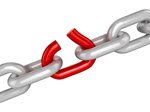 With my recent website move I thought I better check for broken links, in case I had screwed anything up during the transfer. The last few times I’ve done this I’ve used SiteCrawl, which seems to do a decent job.
With my recent website move I thought I better check for broken links, in case I had screwed anything up during the transfer. The last few times I’ve done this I’ve used SiteCrawl, which seems to do a decent job.
After the scan had finished I looked through the results and had a couple of broken internal links and 171 broken external links. Can you guess where the vast majority of the broken external links were pointing to? Yes, it was Oracle documentation. A quick search on my blog reveals about six rants I’ve posted about this over the years. There have been many more incidents of course.
Fixing this stuff is very time consuming and boring. What’s worse, it robs me of time I could spend on creating new content.
I’m guessing most content producers don’t go back and check for broken links. Oracle certainly don’t because I see them all the time in whitepapers, articles and forum entries. The result of this is a sea of helpful content produced by the community that are littered with broken links to Oracle content. It lowers the value of the community content, through no fault of the content producer.
Oracle. Please stop doing this! You are constantly devaluing the content produced by us in the community!
Cheers
Tim…
Update: You should probably read this by Kim Berg Hansen.
It’s a pain for sure 😉
Over at the PL/SQL Challenge when we link to documentation for the topics of our quizzes, this is the recipe we use:
… Links to Oracle documentation should be of the (permanent) form http://www.oracle.com/pls/topic/lookup?ctx=dbVVR&id=DOCID, where VVR is the version and release, as in db112 or db121, and DOCID is the document ID. To find the document ID, view the HTML source of the page (let’s assume that URL ends with “CHDCCGBH”). Then look for a string like id=”CHDCCGBH” name=”CHDCCGBH”.You will then see the ID just before that, as in id=”ARPLS74093″. …
Sometimes the docs change the URL automatically (some javascript I suppose), so for example this URL to SELECT statement:
http://docs.oracle.com/database/121/SQLRF/statements_10002.htm#i2065646
Will autochange in my browser to this:
http://docs.oracle.com/database/121/SQLRF/statements_10002.htm#SQLRF01702
In which case I can simply use the SQLRF01702 and create this URL:
http://www.oracle.com/pls/topic/lookup?ctx=db121&id=SQLRF01702
And that last one should work permanently (one hopes 😉
If I want a link to an anchor like for example the WITH clause:
http://docs.oracle.com/database/121/SQLRF/statements_10002.htm#BABCGAAJ
This one does not automatically turn into #SQLRFxxxx, so I search the source for BABCGAAJ and find:
<p class=”subhead1″><a id=”BABCGAAJ”></a><a id=”SQLRF55664″>
And then I can create URL:
http://www.oracle.com/pls/topic/lookup?ctx=db121&id=SQLRF55664
There was one point when the docs did this automatically, changing the URL in the browser while scrolling up and down, so the URL constantly had the SQLRFxxxxx anchor for the section of the page you were viewing right now – that made it easier. But that is gone now 🙁
Kim: You do realise this comment will be full of broken links I have to repair by next week. 🙂
I guess I will have to start doing this in future, but it is a pain in the ass compared to just copying the link from the URL bar, like normal. 🙂
Cheers
Tim…
Woops, you’re right. Broken links in comments – my bad 🙁
Since Oracle has this “lookup” facility for using permalinks, they could actually give us a “reverse lookup” that could be used for creating permalinks – paste in the URL from the browser and retrieve a “lookup” style permalink. Request for Enhancement?
Kim: Or just stop changing them. 🙂
The discussion sparked that I finally did what I long have wanted to do:
http://www.kibeha.dk/2016/05/oracle-documentation-permalink-creation.html
At least a little help in creating permalinks when Oracle uses volatile 😉
Kim: I’ve put a link to your post as an update at the bottom of my post. 🙂
Cheers
Tim…